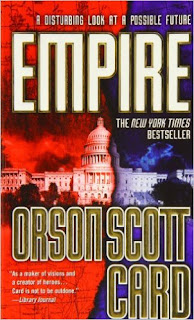 |
| I got sick of Google image searching "Donald Trump" so here's a flower instead. |
Donald Trump is such a big deal that I've posted about him on about 50% of my posts thus far during my month-long blogging challenge. Well, yesterday I had the chance to ask my pastor about his views on the Trump phenomenon. I thought they were good enough to share with you (I blogged about geese of course so... most things are good enough to share with you).
So Arielle and I were having coffee with our pastor and had been enjoying our time. Towards the end of our visit I decided to ask him what he made of the squirrely-haired businessman / reality TV star's presidential campaign. I threw it out there to see if had anything notable to say.
Well... his tone changed a bit. We had been having a good humored and thoughtful talk about relationships. Now his words became quite earnest... with a gravity that acknowledged that something important was going on.
He started telling us how he used to operate a trap line up north (I had no idea my pastor used to do this, though I knew he had a diverse background involving construction and related things). He said how that was a very difficult time in his life and certain things stuck with him more than most.
One of those things was how an animal, caught in a trap, would gnaw off one of it's own limbs to save what is vital. That's pretty grim and he saw it often. And the idea of an animal sacrificing one of it's own limbs stuck with him.
That, he said, is what he thinks about when he sees Trump and the many supporters that he has won: a group that feels itself to be in such desperate circumstances that they are willing to amputate something dear in order to save that which is indispensable. Their leg is caught in a trap and they're willing to gnaw it off. He elaborated, explaining that, to him, Americans had been fed a particular idea of "greatness" for so long, and that when that idea of "greatness" is put under threat many are willing to cast aside other values in order to protect it.
I've been thinking about this metaphor since. What is this idea of "greatness" they have been fed? It seems to me it is based on things like wealth, security (through strength), and national or personal pride. Strength. Might. Power. If this is what "greatness" is it's okay to sacrifice other values, such as temperance, respect, protecting the weak (or at least not targeting them), and communal good.
Now, you don't have to follow U.S. politics very closely to know that Trump supporters are far from the only ones making sacrifices on some of these values - people on all sides of the political spectrum are guilty to some extent. Trump just represents the vanguard, loudly promoting things like racial profiling, violent attitudes, and just simply acting like a school yard bully, collecting a group of followers who seem particularly desperate and willing to make radical change - whatever the direction. But... like Chris Hedges says,
"Trump is not making a political revolution. He is responding to one."
I suppose in the end, if you really believe in the metaphor you could argue that gnawing off a leg to free yourself from a trap is the better of two terrible options. Then, if that's true, it's also really crappy to consider how things got this bad in the first place. And there is plenty of blame to go around on that one.
This didn't turn out to be much of a smackdown. I'll continue my thoughts on this tomorrow.











